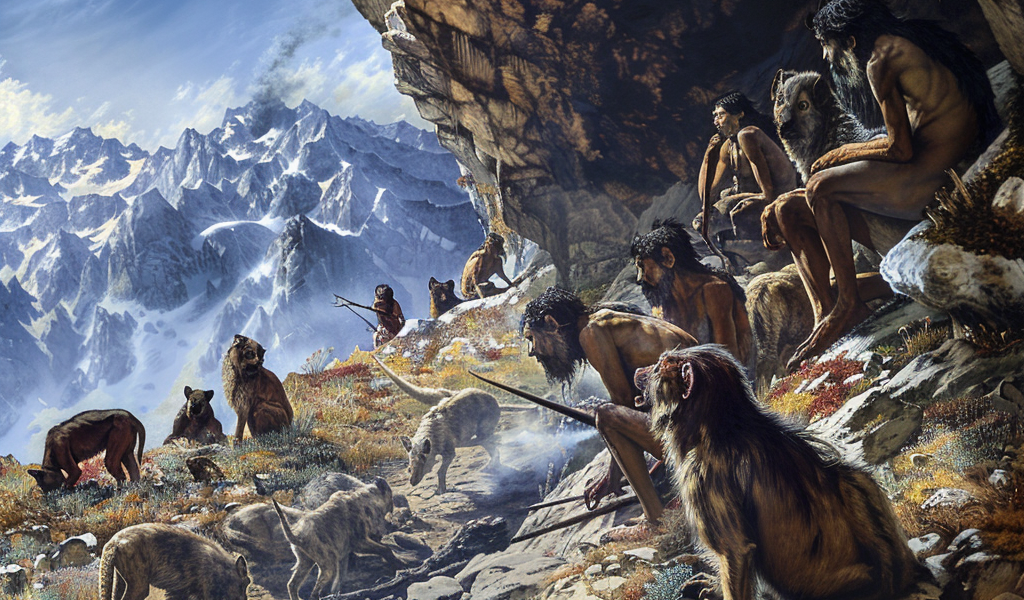Recent archaeological findings have shed light on the mysterious ancient humans known as Denisovans and their remarkable survival strategies. A study of animal bones at the Baishiya Karst Cave in China has revealed that Denisovans thrived in harsh environments by hunting a variety of animals, including hyenas and hares, to sustain themselves on the Tibetan plateau for over 100,000 years.
Denisovans, a sister group to Neanderthals, were discovered in a Siberian cave in 2010 and are believed to have once inhabited various regions across Asia. The recent study, published in Nature, identified a new Denisovan individual through protein signatures found on remains in the cave.
According to Frido Welker, an archaeological scientist at the University of Copenhagen and co-lead of the study, the findings suggest that Denisovans adapted to their challenging surroundings by utilizing the available resources to survive in the high-altitude, cold landscape of the cave. The discovery of Denisovan remains in China expands the known range of their habitation beyond Siberia.
Denisovans have long been a subject of interest due to their genetic connections to modern humans in Asia and Oceania, indicating past interbreeding between the two groups. The presence of Denisovan protein signatures in ancient remains further supports the hypothesis that Denisovans were a cosmopolitan group that inhabited a wider geographical area than previously believed.
The study highlights the resilience and resourcefulness of Denisovans in adapting to challenging environments and sheds new light on the survival strategies of these enigmatic ancient humans.





